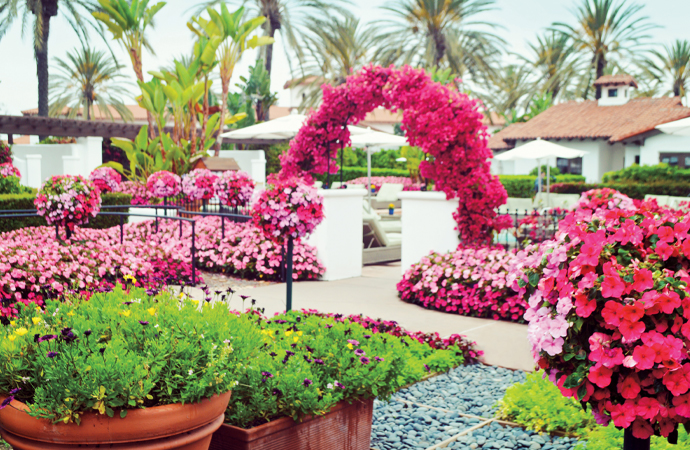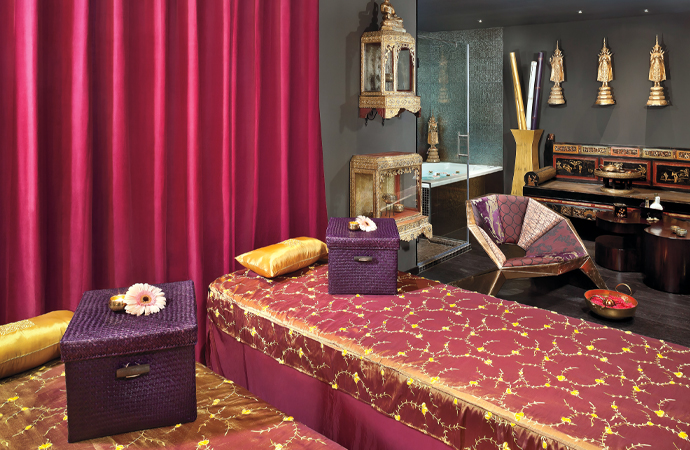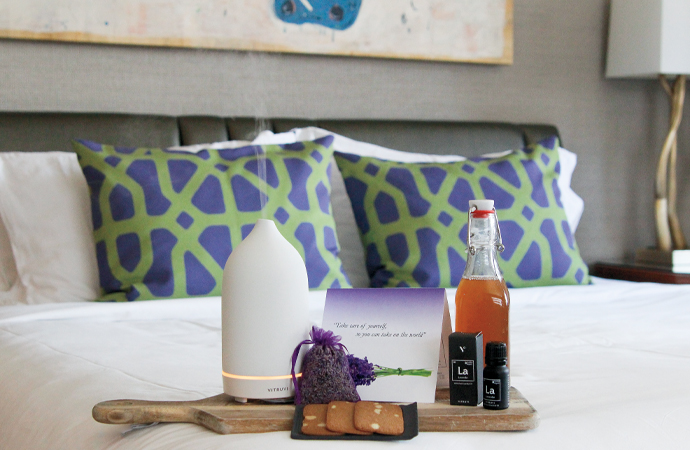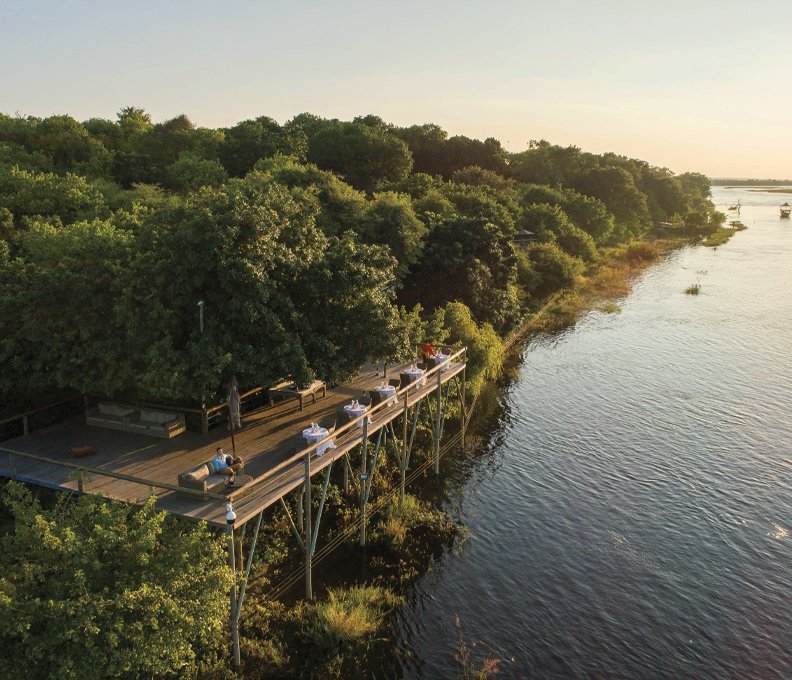It took me within minutes of my safari in Chobe National Park to discover that my new favorite scent was sage. “This is the scent of Botswana,” Steven Frenkel, marketing and sales manager for Desert & Delta, the company that ran the safari, told me as I disembarked from the plane at Kasane International Airport. That afternoon, as our jeep meandered toward Chobe Game Lodge, a secluded hideaway deep in the park, I saw—or, rather, smelled—what he meant.
As I walked through the entrance gate, I felt like I had entered an aroma diffuser. The scent of sage mixed with sweet wild basil wafted through the air, and my nose pricked up with eyes searching for larger animals. It was a multi-sensory journey of daily overstimulation. Seeing elephants roaming and lions fighting was a big part of the excitement, but the scent of sage also played a part.
Scents play an important role in health, and sage is a great example. For thousands of years, indigenous cultures, such as Native American communities, have used this herb for physical and mental health. While aromatherapy is only a small part of its role among indigenous peoples, science suggests that even just smelling the scent of this herb may improve mood and cognition.
“Scents stimulate the olfactory system in the brain, which is closely connected to the limbic system, which is responsible for emotions and memory,” says Celine Leslie, lead massage therapist at the Spa at St. Julien, a stylish resort in Boulder, Colorado. “Scents provoke specific physiological responses, including relaxation, alertness and mood enhancement.”
The spa embraces aromatherapy “as a way to enhance our guests’ sensory experience,” Leslie points out. Sage is just one of countless scents touted for health benefits. Eucalyptus clears sinuses and promotes mental clarity, while citrus fruits uplift the mood, increase energy, and minimize fatigue, Leslie says. Lavender and patchouli also have relaxing effects and reduce stress.
Wellness enthusiasts are adopting a variety of ways to enjoy the healing powers of scent, from massage oils and diffusers to inhalation and bathing, Leslie said. Some practitioners are even taking the practice further by offering perfumes as “functional fragrances,” which unlock physiological or psychological responses, such as stress reduction.
Another growing area in the scent world is aromacology, which Leslie points out is a relatively new term. “Aromacology is the study of how scents affect human behavior and emotions. It sometimes overlaps with aromatherapy, but the focus is more on the psychological effects of scent,” Leslie says. While aromacology is the study of scent and the human brain, aromatherapy can incorporate the findings of that research. The two practices work hand in hand, offering a simple, non-intrusive way to alter emotions.
At the Spa at St. Julien, for example, experts like Leslie guide clients through a customized aromatherapy experience based on their desired results. “Clients choose from our blends of Alpine, Canyon Mint, and Colorado Wildflower while being guided through breathing exercises at the beginning of the service,” she says. “You will be asked about your preferences and health goals, and a specific essential oil or blend will be selected accordingly.”


Courtyard at Omni La Costa Resort & Spa in Carlsbad, California / Photo credit: Omni La Costa Resort & Spa
At the Omni La Costa Resort & Spa in Carlsbad, California, you can take classes to learn about the role scent plays in your health. These free workshops teach participants how to strategically use scent in their lives, and you can also book an aromatherapy massage with a variety of scents.


Massage suite at the Gran Melia Palace in Madrid / Photo credit: Melia Hotel
At resorts such as Palacio de los Duques Gran Meliá, a former palace-turned-monastery in the heart of Madrid, travelers can enjoy an aromatherapy menu in their room to create the ambiance and emotion they desire for their trip. Kimpton Hotel Palomar Phoenix offers a similar scent-based service: the hotel is equipped with numerous essential oil-scented diffusers, and guests can choose their own scent as part of the hotel’s nightly aromatherapy turndown service.


Aromatherapy turndown service at Kimpton Hotel Palomar Phoenix / Photo courtesy of Kimpton Hotel Palomar Phoenix
Back at Chobe Game Lodge in Botswana, a luxury safari escape with a fitness center and spa, Spa Kwa Maningi, allows travellers to immerse themselves even more deeply in South Africa’s biodiverse region. “At the lodge, you’re in nature, and at the spa, you’re getting a natural treatment,” says lodge service manager Tumelo Mbanga. During treatments, guests can hear everything from roaring baboons to roaring elephants. “Here you feel connected to Botswana. Even the scents of the oils and creams are natural.”
Aromas on offer at Spa Kwa Maningi include African Tsama Melon and Khoi San aromatic oils. Khoi San is named after the region’s indigenous community and draws on many of the scents unique to the Kalahari Desert, including the fragrant wild grasses and succulents that greeted us at the entrance to Chobe National Park.

